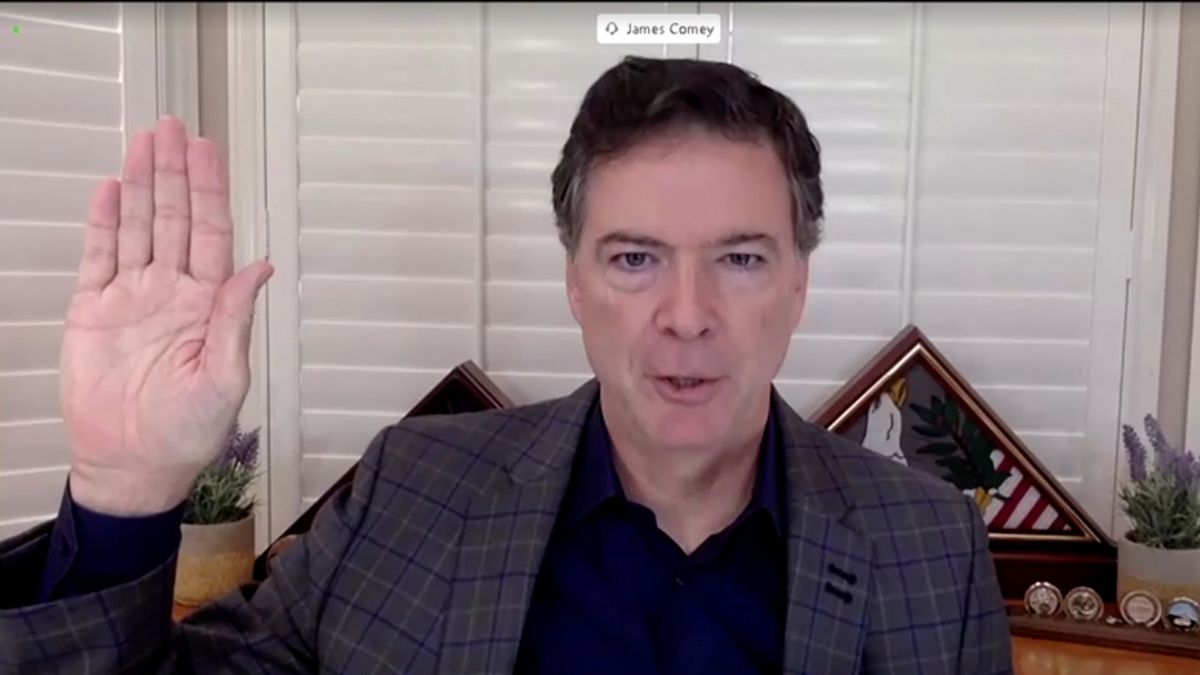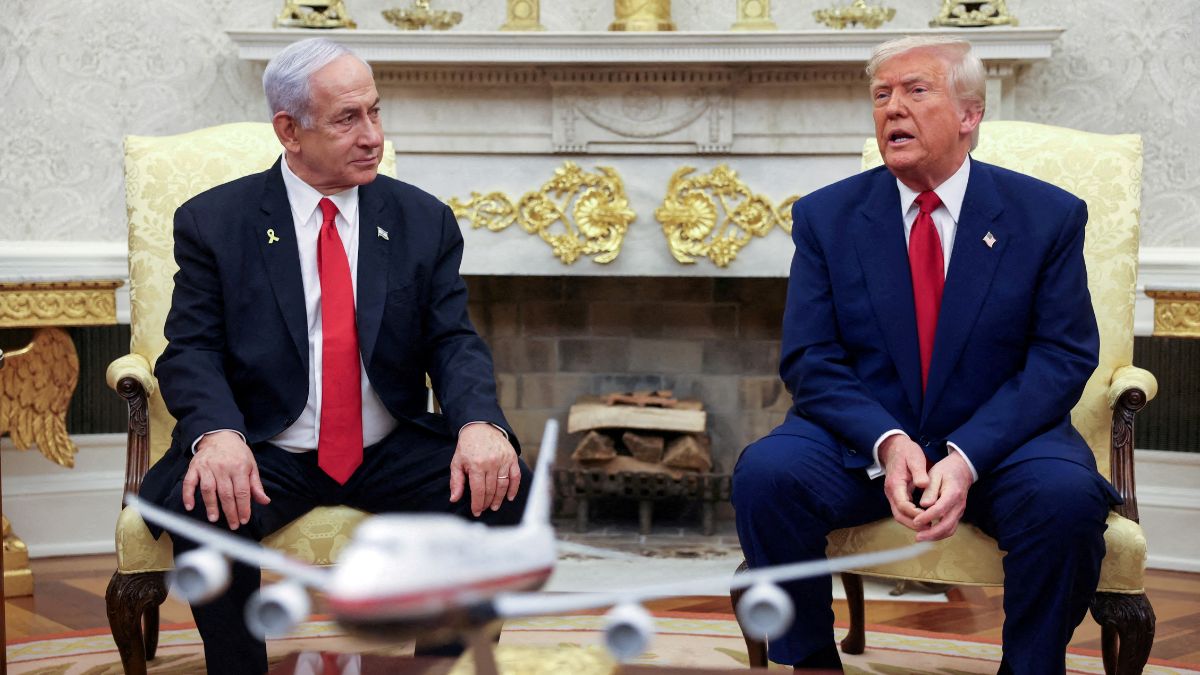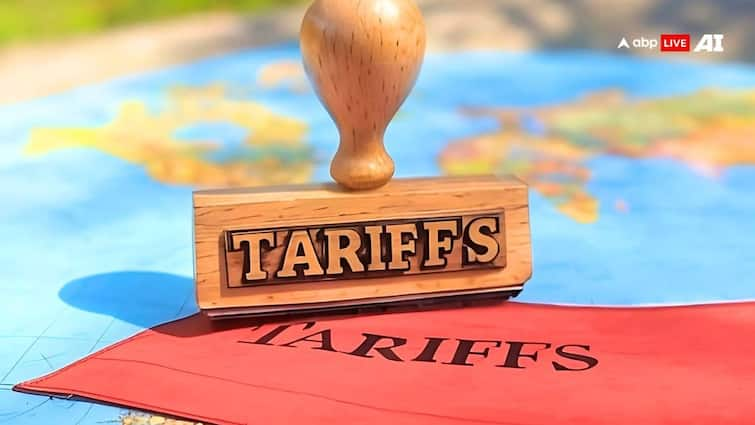James Comey, the former director of the Federal Bureau of Investigation (FBI) has been indicted on two felony charges.
The development represents a dramatic turn in a long and public feud between Comey and US President Donald Trump, whose first term was repeatedly marked by clashes with the former FBI chief.
The indictment, unsealed on Thursday, accuses Comey of lying to Congress and obstructing a congressional proceeding.
It stems from testimony he gave in 2020 about whether he authorised leaks of information to the press concerning sensitive FBI investigations during the 2016 election cycle.
What we know about James Comey
James Brien Comey Jr was born on December 14, 1960. A lawyer by training, he has held a series of prominent positions in the US justice system over several decades.
Comey’s early rise in government began when he was appointed US Attorney for the Southern District of New York in 2002 during the administration of US President George W Bush.
He served in that role until 2003 and then became the US Deputy Attorney General, the second-highest-ranking official in the Department of Justice (DOJ), a position he held until 2005.
After leaving government service in 2005, Comey entered the private sector. He worked at Lockheed Martin as a senior vice president and general counsel.
Later, he became general counsel at the hedge fund Bridgewater Associates and served on the board of HSBC Holdings. In academia, he was a senior research scholar at Columbia Law School, where he focused on national security law.
Editor’s Picks
In 2013, US President Barack Obama appointed Comey as the Director of the FBI. His appointment followed the departure of Robert Mueller, who had led the bureau for more than a decade.
Comey’s role as FBI director placed him at the centre of several high-profile investigations that would shape his legacy and, ultimately, lead to his dismissal four years later.
Comey’s role in the Hillary Clinton email investigation
One of the most consequential moments in Comey’s tenure came during the 2016 US presidential election. As FBI director, he oversaw the investigation into former US Secretary of State Hillary Clinton’s use of a private email server while serving in the Obama administration.
Initially, the FBI concluded its investigation in July 2016 without recommending criminal charges against Clinton, though Comey publicly criticised her handling of classified information as “extremely careless.”
This announcement was already unprecedented, as FBI directors typically do not deliver public statements about investigations that do not result in charges.
However, just 11 days before the presidential election, Comey informed Congress that the FBI was reopening the investigation after new emails were discovered on a laptop belonging to Anthony Weiner, then the husband of top Clinton aide Huma Abedin.
This late-stage development drew intense criticism and is widely believed by some political analysts to have influenced the election outcome.
On June 14, 2018, Justice Department Inspector General Michael Horowitz released a detailed report examining the FBI’s handling of the Clinton email investigation.
The report criticised Comey’s decisions, concluding that he deviated from established procedures, though it did not find evidence of political bias influencing the FBI’s actions.
When Comey was fired by Trump
Donald Trump dismissed James Comey on May 9, 2017, citing concerns over his handling of the Clinton investigation.
However, statements from Trump and his aides later suggested that the firing was linked to the ongoing FBI investigation into potential ties between Trump’s 2016 campaign and Russian officials.
Comey later testified before Congress that Trump had privately urged him to drop the FBI’s investigation into Michael Flynn, Trump’s former National Security Advisor.
Following his firing, Comey reportedly shared a memo he had written documenting this conversation with a friend, asking that it be provided to the media.
Trump publicly condemned Comey multiple times, calling him “the worst leader, by far, in the history of the FBI.” Meanwhile, some of Comey’s critics argued that his decision to leak the memo violated FBI policies.
Inspector General Horowitz later found that Comey’s handling of the memos violated DOJ and FBI guidelines but concluded that there was “no evidence that Comey or his attorneys released any of the classified information contained in any of the memos to members of the media.”
The Justice Department declined to prosecute him at that time.
Comey’s dismissal also led to the appointment of Robert Mueller as Special Counsel to continue the investigation into Russian interference in the 2016 election.
Mueller ultimately found no evidence of collusion between Trump’s campaign and Moscow, though the investigation exposed extensive efforts by Russia to influence the election outcome.
Trump repeatedly dismissed the probe as a “witch hunt.”
Events leading to Comey’s indictment
The current case against Comey stems from his testimony before the US Senate Judiciary Committee on September 30, 2020.
During the hearing, Republican lawmakers questioned him about whether he had ever authorised individuals within the FBI to speak anonymously to journalists about sensitive investigations during the 2016 election cycle.
Comey denied doing so, reiterating his earlier position from 2017.
He told the committee, “I can only speak to my testimony. I stand by the testimony you summarised that I gave in May of 2017.”
However, prosecutors now claim that Comey knowingly provided false information. According to the indictment, Comey “knew” and “in fact had authorised” an unnamed associate to act as an anonymous source for news articles covering an FBI investigation.
The case was presented to a grand jury in Alexandria, Virginia, led by Acting US Attorney Lindsey Halligan.
Halligan was appointed by Trump days earlier following the resignation of a previous US attorney who reportedly disagreed with pursuing charges against some of Trump’s political opponents.
Fourteen of the grand jury’s members voted to indict Comey, surpassing the minimum threshold of 12 votes required to proceed.
Notably, prosecutors also sought to charge Comey over a separate statement he made during the same 2020 testimony, relating to an alleged plan by Hillary Clinton’s campaign in 2016 to damage Trump’s campaign.
When asked by Republican Senator Lindsey Graham about his awareness of this plan, Comey replied, “That doesn’t ring any bells with me.”
The grand jury ultimately declined to include this allegation in the indictment. This decision, known as a “no true bill,” is relatively rare and indicates that a majority of jurors did not find sufficient probable cause to proceed with that charge.
The specific charges against Comey
The final indictment includes two felony counts:
Obstruction of a congressional proceeding – alleging that Comey deliberately interfered with the Senate Judiciary Committee’s ability to carry out its oversight responsibilities by providing false testimony.
Making false statements to Congress – claiming that he knowingly lied about authorizing leaks of sensitive information to the media.
If convicted, Comey faces a potential sentence of up to five years in prison.
However, sentences for federal crimes are often less than the statutory maximum.
How Washington has reacted
Trump publicly celebrated the grand jury’s decision on his social media platform, Truth Social, writing, “JUSTICE IN AMERICA! One of the worst human beings this Country has ever been exposed to is James Comey, the former Corrupt Head of the FBI. Today he was indicted by a Grand Jury on two felony counts for various illegal and unlawful acts.”
Attorney General Pam Bondi defended the charges, saying, “No one is above the law. Today’s indictment reflects this Department of Justice’s commitment to holding those who abuse positions of power accountable for misleading the American people. We will follow the facts in this case.”
However, critics have voiced concern over the circumstances surrounding the indictment.
US Senator Mark Warner of Virginia sharply criticised Trump’s appointment of Lindsey Halligan to lead the US Attorney’s Office for the Eastern District of Virginia, arguing that the move undermined the Justice Department’s independence.
“This kind of interference is a dangerous abuse of power,” Warner said.
“By ousting a respected, independent prosecutor and replacing him with a partisan loyalist, Trump is undermining one of the most important US Attorney’s offices in the country and eroding the rule of law itself.”
The situation has sparked fears of a return to the kind of executive overreach seen during the Watergate scandal of the 1970s, which prompted reforms designed to create a clear separation between the White House and federal prosecutors.
Comey’s defence and next steps
Comey has firmly denied the allegations. Shortly after the indictment was announced, he released a video statement defending his actions and criticising the political environment surrounding the case.
“My family and I have known for years that there are costs to standing up to Donald Trump. But we couldn’t imagine ourselves living any other way. We will not live on our knees and you shouldn’t either,” Comey said.
He added, “I have great confidence in the federal judicial system and I’m innocent. So let’s have a trial and keep the faith.”
Comey’s arraignment has been scheduled for October 9, 2025, in federal court in Alexandria, Virginia.
Judge Michael Nachmanoff, appointed by US President Joe Biden, will preside over the case. At the arraignment, Comey will have the opportunity to formally plead not guilty, and the court will outline the next steps leading toward a trial.
His legal team is expected to challenge the indictment vigorously. Potential strategies include filing motions to dismiss the charges, questioning the impartiality of the prosecutors involved, and scrutinising the role of political figures who have publicly commented on the case.
The defence will also seek access to all evidence gathered by prosecutors, including testimony and documents related to the 2020 Senate hearing.
Both sides will have opportunities to present arguments in pre-trial hearings before jury selection and the trial itself begin.
The Comey family’s legal disputes
The indictment comes shortly after another legal development involving Comey’s family. In July, Comey’s daughter, Maurene Comey, was abruptly dismissed from her role as a prosecutor in the Manhattan US Attorney’s Office.
She subsequently filed a lawsuit against the Department of Justice, alleging that her firing was politically motivated.
Maurene Comey’s complaint stated that she was terminated “solely or substantially because her father is former FBI director James B Comey, or because of her perceived political affiliation and beliefs, or both.”
She has previously worked on several high-profile cases, including prosecutions related to Jeffrey Epstein, Ghislaine Maxwell, and musician Sean “Diddy” Combs.
Her lawsuit is ongoing.
Also Watch:
With inputs from agencies
End of Article

)
)
